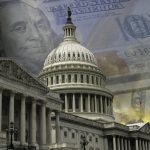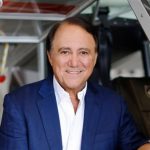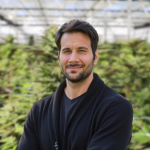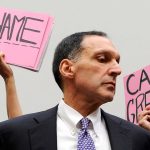What do you imagine when you think about the career trajectory of a CEO? For experienced executive Michael Polk, his path to the top was anything but linear. Initially trained in engineering, he steadily rose through the ranks to lead some of the world’s biggest brands, including Kraft Foods, Unilever, and Newell Rubbermaid (now Newell Brands).
“I started my career in 1982, so I've been working for a long time. After nearly 40 years, I retired in 2019, and I failed miserably at retirement. I only lasted about four months before my family told me to get back to work,” he says. Not one to rest on his laurels, Michael Polk explains how his past experiences shaped his current approach to leadership at Implus LLC.
Former CEO of Newell Brands Michael Polk’s Non-Traditional Background
Polk’s career path was far from typical. Many CEOs earn business management or finance degrees, but that wasn’t for Michael Polk—he wanted to be an engineer. “I applied as an engineer, following my Dad’s footsteps, and studied Operations Research & Industrial Engineering (OR&IE) in the College of Engineering at Cornell,” he explains. “We were using early computer programming languages to figure out how to optimize material handling and usage in factories or how to optimize services industry flows using queuing theory.” It may sound complex, but Polk believes his technical background allows him to better understand the mechanics of production and supply chains.
Right out of college, he took a consumer goods role at Procter & Gamble, a decision he made to be near his girlfriend at the time. “All of these career choices led to the next door opening for me,” he shares. Instead of following a rigid career ladder, Polk embraced various roles, delivering strong results and earning the respect of senior leaders. “I just did them and grew from the experiences, and my bosses appreciated me doing it,” he explains.
Little did he realize the seemingly small decision to live near his girlfriend would set him up for a future in P&G leadership. “The experience in the factory was one of the most formative in my career,” Michael Polk says. “I learned a ton about myself, what I knew and what I did not know, how dependent I was going to be in my career on others' support, and how necessary it was to respect all the different roles in a manufacturing and business system given the interdependencies.”
Going Global
In the early stages of his career, Polk boldly decided to relocate to Australia with his family to lead the creation of Kraft Foods International’s Asia Pacific region. It was his first professional experience outside the United States, and the responsibilities were significant: overseeing 20 countries, managing three joint ventures across Japan and South Korea, and building a new regional organization model. “I was in all these places, and I was immersed in all of these countries and cultures. The experience was transformative for me personally and professionally,” Polk says.
This move didn’t come without its challenges. With four young children and no local support system, Polk and his wife navigated the complexities of raising a family while managing the demands of a high-profile role. Despite these obstacles, the experience paid dividends, giving Polk unique insights into global markets and leadership.
Polk’s exposure to the competitive landscape in Asia, which included major players like Unilever, Nestlé, and Danone, was instrumental in his career progression. This knowledge became a key factor when he joined Unilever later in his career, eventually leading global marketing and product development in London. He credits his willingness to embrace the unfamiliar as a catalyst for these opportunities. “Had I not chosen to move to Australia to lead Asia Pacific for KF International, I never would have led the integration of Nabisco into Kraft, been recruited to Unilever, or become the Chief Executive Officer of Newell Brands,” Michael Polk says.
Relationship-First Leadership
One of Michael Polk’s top leadership takeaways is to prioritize personal relationships. He believes connection, trust, and transparency are a must for any leader, whether they’re at the helm of a multinational company or a small business.
As a self-described introvert, he acknowledges that engaging with large teams and hosting global town halls doesn’t come naturally. “I'm an introvert by nature, so getting in front of 250 people every month for global town halls is a learned behavior for me,” he admits. Still, he recognizes that modern leadership requires direct communication and fostering a sense of followership.
“Today, employees expect to be able to hear directly from you, to be engaged with you, and to hear how you think,” Polk says. He believes leaders must prioritize accessibility and openness to build alignment and trust. “Be authentic. Be open. Trust your people with information you might have in the past held closer to the vest,” he explains.
Alchemizing Mistakes into Wisdom
Nobody likes failing, but for Michael Polk, mistakes are stepping stones to growth—not failures. Polk is candid about the challenges he faced throughout his career. “With the opportunities to lead come the risks of not being as effective as one hopes to be,” he says.
Unlike many leaders who shy away from acknowledging their mistakes, Polk reframes them as crucial opportunities for learning and development. “Every time I have tried something that did not work, I have learned from experience and grown,” he says.“ Some of that growth was a bit painful, but that kind of growth can be some of the most transformative,” he explains. This mindset has allowed him to recover from missteps and use them as a foundation for future success.
From Engineer to Executive: Michael Polk’s Legacy of Authenticity
It’s hard to predict where your career will go, but as Michael Polk’s story shows, being open to opportunities is key. From his unconventional beginnings in engineering to leading global corporations, Polk’s career is a reminder that success isn’t always about following a set path—it’s about taking a swing, learning from the outcomes, and staying open to growth. “Each of the chapters of my career have helped me grow as a leader, and I am a stronger executive and person for having had the experiences,” he says.











